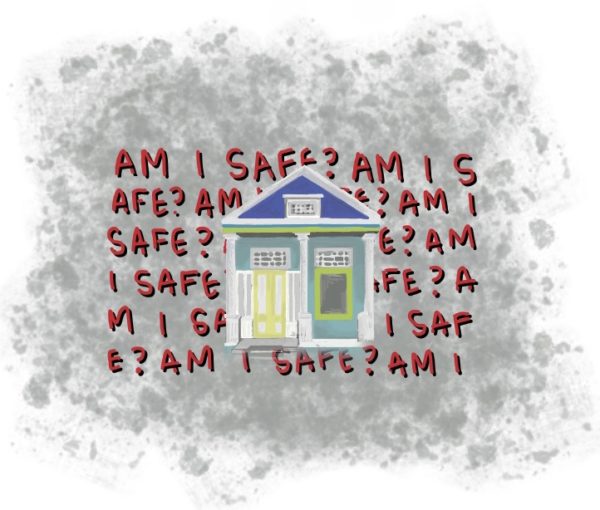Content Warning: The following article contains subject matter pertaining to sexual violence.

On Aug. 26, 2023, an incident involving a break-in and sexual battery against a student occurred at an off-campus residence. Tulane University Police Department issued a campus alert via student email about this incident. Unfortunately, this crime is not the first of its nature to target vulnerable students.
While there is no end-all solution to stop crimes that target off-campus students, there are various steps that students can take to feel safer and more prepared in dangerous situations. There is also an appropriate way to discuss off-campus crime. Rather than blaming the victim of the situation, implying that they should ‘secure their residence’ or ‘install a camera or lighting around your doorway’ after describing the crime, there should be more emphasis on spreading awareness.
The crime that happened on Aug. 26 falls under the category of sexual violence, which is more likely to affect college-aged women. According to the Rape, Abuse and Incest National Network, 26.4% of female college students have experienced some form of sexual violence. This percentage is consistent with Tulane’s findings in their 2022 Tulane Sexual Misconduct Climate Survey, which reports that around 27% of female respondents were raped during their time at Tulane, while 36% of female respondents experienced some form of unwanted sexual contact.
In an individually conducted survey about off-campus safety, 11 students responded, three of which were male, eight of which were female-identifying. When asked if there was ever an instance where they felt more at risk living off campus, every female-identifying person responded with “yes.” Although this survey represents a small number of students, the fact that every female student has felt unsafe at least once aligns with the national and universitywide data.
When asked their opinions on the effectiveness of the university’s crime alert communications, students had varying opinions. 54.5% of students responded that they were “sort of” effective, 9.1% said “no” and 9.1% said “unsure.” One respondent said, “For some people, it raises awareness, whereas for others it creates fear. Everyone reacts differently to them,” while another said, “They just make us more aware of crime but don’t really help prevent/protect against it.”
The students surveyed agreed that the university’s communication can be effective in raising awareness of local crimes; however, some respondents said they believe they do not serve any purpose beyond that. About 55% of students surveyed said they were aware of safety resources offered by the university, but some believed they were not publicized enough.
Although the resources offered by the university are not the answer to preventing all crimes from happening, they are extremely helpful and important to be aware of and can help students feel safer off campus. The university should further publicize these resources to ensure students are aware of how to use them.
Benjamin Plachter is a sophomore who works with Tulane’s Office of Emergency Preparedness and Response and helps create its social media content. He suggested that communications relating to safety and resources might reach a wider audience through social media, especially through content that is easy to understand, but also informative.
Social media plays a role in the day-to-day lives of college students. Around 84% of all American adults aged 18-29 report using social media, according to a Pew Research study conducted in 2021. Social media platforms such as Instagram allow students to follow university-related accounts and receive updates and related content through their stories and social media feeds.
Over 60,000 people follow @tulaneu on Instagram. Finding a way to publicize safety resources via Tulane’s already frequented social media channels can help students understand what to do in an unsafe situation.
Although there is no way to fully prevent crimes, the focus should center on supporting those who have been targeted by these crimes. Safety and prevention measures should go deeper than students who feel vulnerable resorting to carrying pepper spray or an alarm — students should be able to consult the university for help and emergency services. Tulane should emphasize safety resources through the outlets that many students already find themselves using.
To learn more about Everbridge, Tulane’s campus safety app, click here.
For victim resources, click here.
To contact the Tulane Office of Crime Prevention and Victim Resources, call (504)-865-5381.
To request a police escort, call (504)-865-5381.
To contact TUPD’s Uptown division, call (504) 865-5911 for emergencies OR (504) 865-5381 for non-emergencies.



Leave a Comment